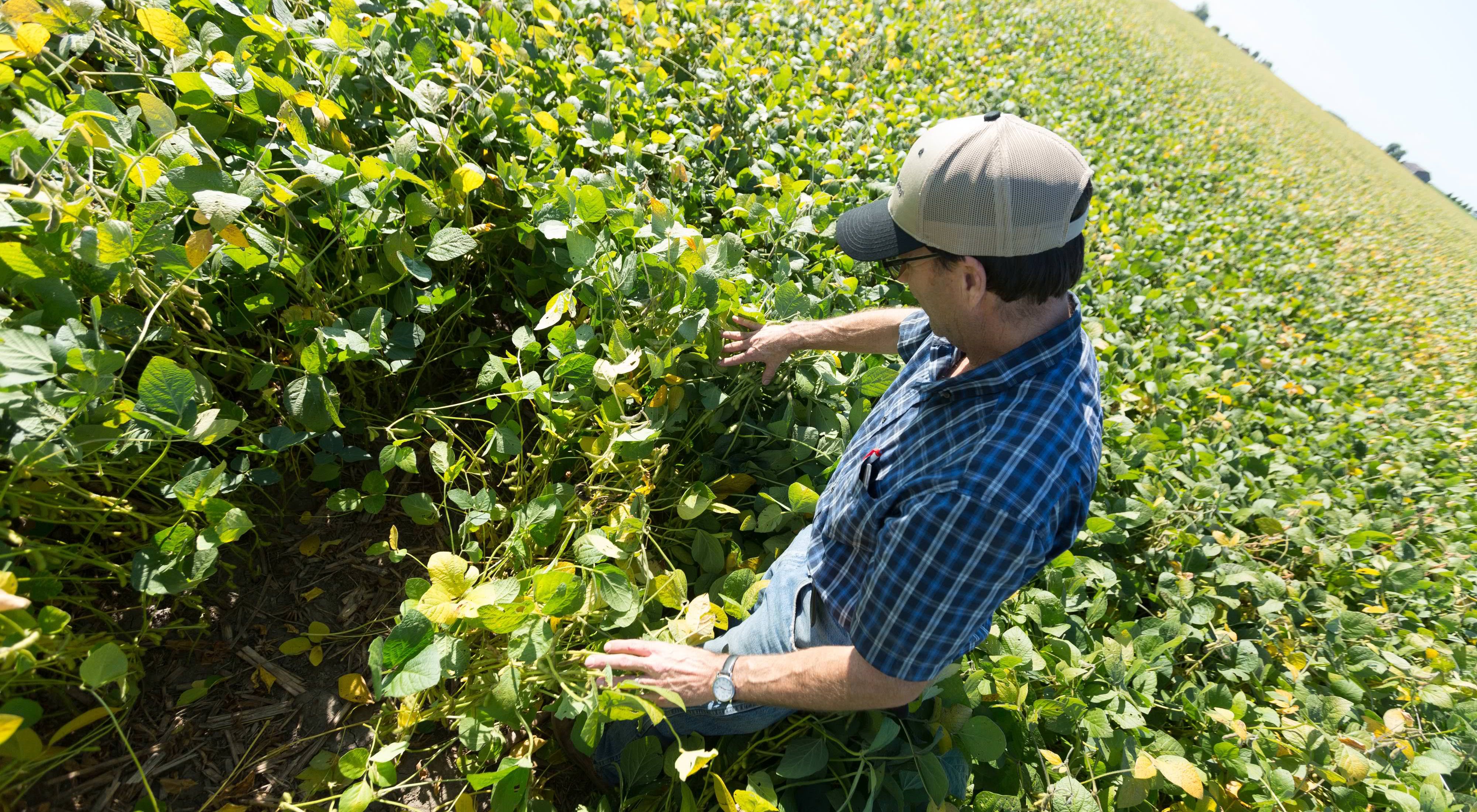The Kellogg Company
Creating a Sustainable Food System in Critical U.S. Watersheds
From the farm to the breakfast table, cereal is a staple of American culture. In 2017 alone, U.S. farmers grew approximately 45.7 million acres of wheat, 2.4 million acres of barley, 2.5 million acres of oats and 6 million acres of sorghum. As the world’s population continues to grow, farmers are under increasing pressure to produce more food, while at the same time caring for the lands and waters that sustain us all.
The need for increased agriculture production is among the century’s utmost challenges—and one of the greatest conservation opportunities today. If we are to ensure enough food for all people without sacrificing the environment, we believe it is imperative for agriculture and food industries to adopt a sustainability framework into their business models. Rising consumer interest in where their food comes from and a desire to support America’s farming families further underscores the need for a sustainable food system.
Sustainability is at the heart of an effort between TNC and the Kellogg Company to incentivize conservation agriculture practices among corn, wheat and rice farmers in the Mississippi River Basin and Great Lakes regions.
Through a gift from the Kellogg Company to TNC, our goal is to provide thousands of farmers with funds and technical assistance to implement conservation practices (i.e., cover cropping, conservation tillage, nutrient management, vegetative buffers, irrigation efficiency and wetland restoration), and demonstrate that agriculture can contribute significantly to improved environmental outcomes. This effort will not only help farmers increase their soil health and crop productivity, but it will help to improve water quality and aquatic habitat in local streams and wetlands.
The 3-year project is touching down in four distinct geographies. Efforts in each of these places will include three elements that build upon one another in each subsequent year: farmer outreach and education; measurement and documentation of continuous improvement; and practice implementation. With support from the Kellogg Company, here’s what TNC is doing:
Upper Cache River Basin, Arkansas
Arkansas is the leading producer of rice in the United States, providing about 46% of the nation's supply. Fully funded by Kellogg’s gift, TNC is supplying rice farmers with timers and electronic shut-off valves for well pumps as a means to efficiently manage their irrigation practices. Farmers can use these pump timers to easily shut off their well pumps once fields are optimally irrigated – a practice that would not always be possible otherwise. Ultimately, pump timers will reduce field runoff and erosion, thereby reducing energy costs for the farmer and decreasing harmful nutrient runoff to surrounding waterways that connect to the Mississippi River and the Gulf of Mexico. Learn more here.
Danville, Illinois
Illinois has a number of existing sustainable agriculture programs and partners, but lacks consistent messaging, shared resources and information, and support networks. As a member of the Illinois Sustainable Ag Partnership (ISAP), TNC is working to unify these programs and translate technical information into best practices. Kellogg’s funding will allow TNC to help expand resources to corn producers by providing mini grants to S.T.A.R. program representatives who will offer technical advice and one-on-one consultations to farmers interested in participating in the program. TNC will also establish a cost-share program to incentivize edge-of-field practices like saturated buffers and constructed wetlands, which tend to be costlier to implement and, thus, are often overlooked by farmers. Lastly, TNC is working to establish a farmer-led peer network that allows producers to engage with and learn from each other.
Saginaw Bay, Michigan
The Kellogg’s gift is enabling TNC to expand our successful Pay for Performance program, which offers participating farmers financial incentives to implement soil health practices that increase soil carbon, save topsoil, reduce harmful runoff, and improve water quality in the Saginaw Bay and its tributaries. Soil health practices include cover crops, reduced tillage, and pollinator strips. Using the Great Lakes Watershed Management System, a web-based spatial conservation simulation tool developed by Michigan State University Institute of Water Research, we can estimate the amount of sediment load reduction from a given practice and offer incentives to farmers based on the estimated environmental benefit.
Through extensive outreach to farmers, including one-on-one meetings to talk about practices and possibilities for improvements, as well as farmer field days, we expect to engage hundreds of farmers each year in the Saginaw Bay region, with many more contacted through indirect means such as new articles. Learn more here.
Crete, Nebraska
TNC is piloting a cost-share program funded by the Kellogg’s gift to broaden our engagement with local corn producers. Specifically, TNC is working with farmers and others to increase soil health practice adoption by offering technical assistance and financial incentives to farmers. TNC is also helping to identify potential market mechanisms (e.g., voluntary carbon markets) to understand the feasibility of an economically self-sustaining soil health practice program. The Nature Conservancy is collaborating with one of Nebraska’s Natural Resource Districts and the local NRCS office, leveraging both private and public resources to ensure outcomes of this project are lasting and scalable in Nebraska and beyond.
